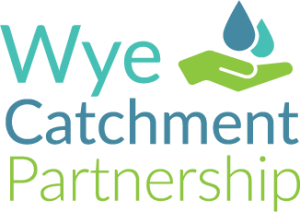Monday 21st December, 2020
Having completed its review last week, Natural Resources Wales issued the anticipated confirmation that more than 60% of the Welsh Wye is now failing limits for phosphate.
As a result, the Welsh environmental regulator will be liaising with relevant councils (Powys, Brecon Beacons National Park and Monmouthshire) to examine what impact this will have on their planning processes. According to Natural Resources Wales, “The ultimate aim will be to ensure that any new development does not adversely affect phosphate levels in rivers. In practice this will mean that each and every project, plan or permit will have to demonstrate that they have a neutral, or better impact on reducing the phosphate levels in the Wye and its tributaries.”

The Wye once again turned a putrid green this summer. The move by Natural Resources Wales last week could help put an end to the increasingly severe algal blooms.
While the review did not identify the major sources of the Wye’s excess phosphate, this change in position by the regulator is very welcome. We believe that acknowledgement of the problem was the first vital step in preventing the Wye suffering further ecological damage through the now annual blight of severe algal blooms.
However, even if their stated ‘aim’ of domestic, industrial and agricultural developments in the Welsh Wye catchment in the future being at least phosphate neutral is carried through, this alone will not be enough to reduce the severity of these blooms.
For this to happen, the amount of phosphate entering the rivers has to reduce. The Foundation and our partners in the agricultural supply chain and farming community started work in the summer to find and implement ways of doing this. In addition, we are monitoring closely the phosphate levels in the Ithon (the tributary where the Wye’s algal bloom has started in recent years) to better understand the problem and ensure the remedial work takes place in the right places.
Restrictions on planning won’t on their own prevent algal blooms. We also need to reduce the amount of phosphate entering the river.
It was also encouraging to hear Natural Resources Wales representatives indicating in media broadcasts last week that they and Welsh Government are taking ownership of some areas of the problem. They appear to accept the need to pay for the implementation of remedial measures, particularly where previous planning decisions have exacerbated the phosphate problem.
The potential negative impact on businesses, especially developers, from planning restrictions must be acknowledged but if we can act quickly, the end result will be a good one with Wales able to move forward economically without destroying the ecology of the rivers we all love.
But for now we are celebrating a very positive move for the environment by Welsh Government and Natural Resources Wales. There is a renewed belief that this problem can be turned around and we would like to thank everyone who responded to our June press release, thereby helping create the pressure for change.
Further reading and listening
Natural Resources Wales press release
Wales Environment Link statement
BBC Farming Today programme, 18 December 2020 (from 7 minutes 55 seconds)



